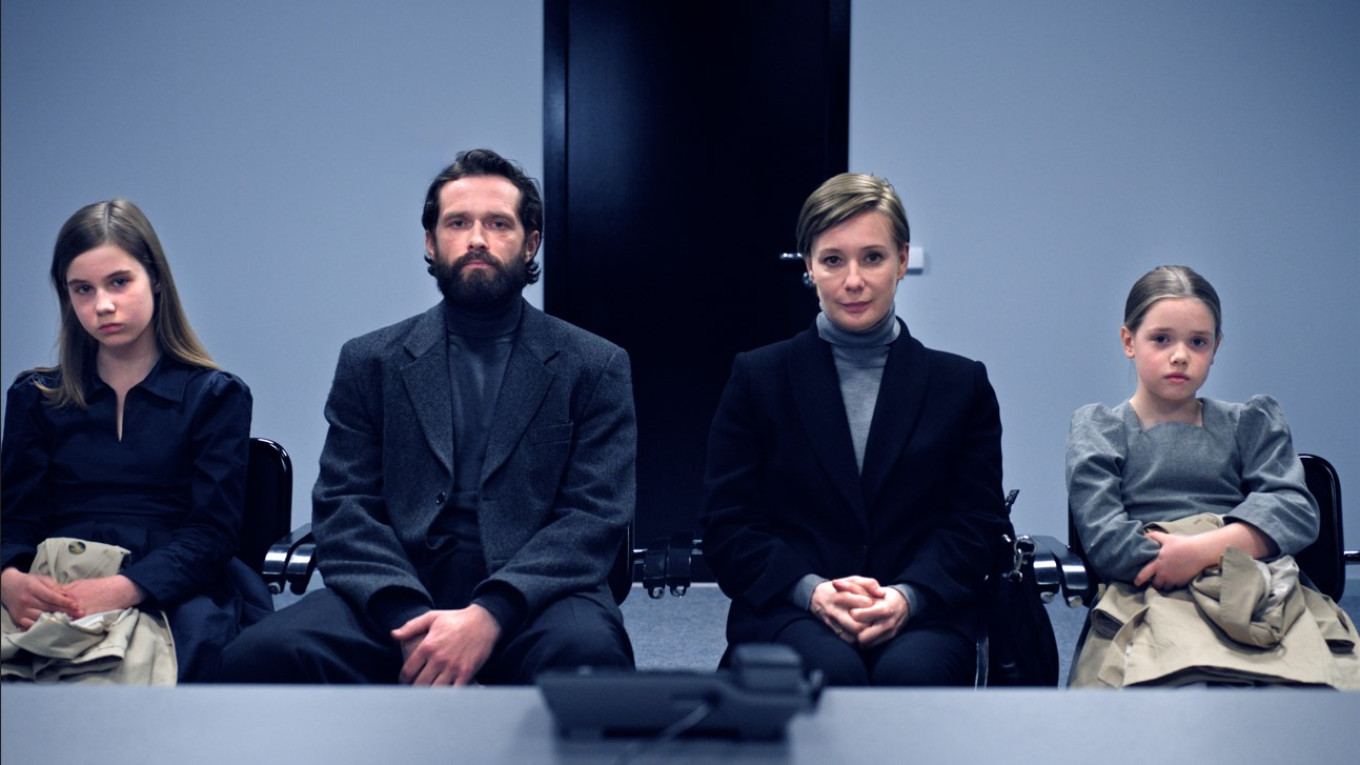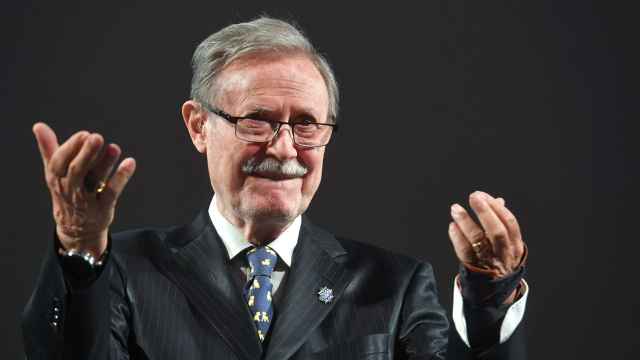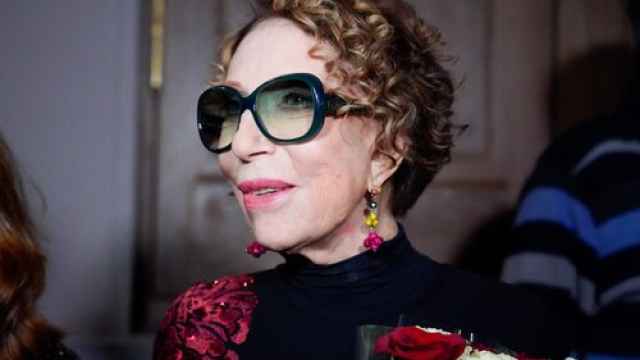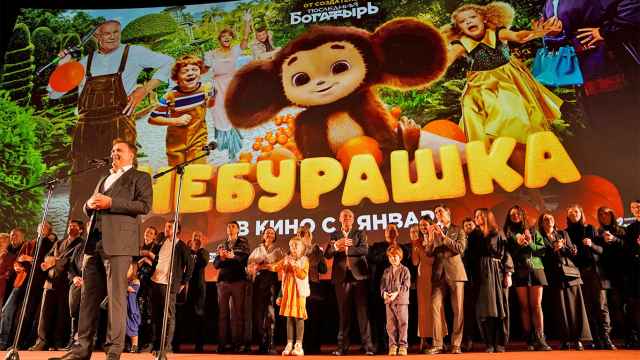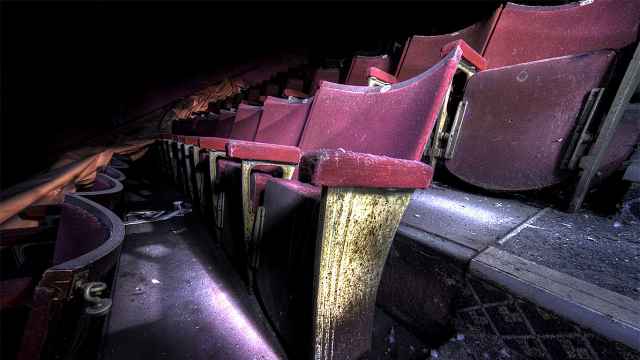On August 29, the Venice Film Festival screened Greek filmmaker Alexandros Avranas’ “Quiet Life,” the story of a Russian immigrant family. The film instantly became one of the most talked-about screenings of the festival to date.
The film follows a Russian couple, Natalia (Chulpan Khamatova) and Sergei (Grigory Dobrygin), who flee their homeland after Sergei’s dissident activities put his life in danger. They arrive in Sweden with their daughters, Katya and Alina.
However, their hopes for asylum are soon crushed by a bureaucratic system that seems more focused on procedures than on people. And then in the place they sought asylum, their young daughter Katya becomes catatonic in what came to be called the “resignation syndrome,” a psychological state that has sparked a heated debate over Swedish asylum policy.
Genesis of a film
Avranas was inspired to create “Quiet Life” after reading a 2017 article in The New Yorker about a strange syndrome that had affected hundreds immigrant children from Russia and former Yugoslavia in Sweden since the early 2000s. Studies suggest that the syndrome affected children after being persecuted or subjected to traumatic experiences that were too intense to process. Resignation syndrome was only officially recognized as a pathology in Sweden in 2014. Today, it’s understood as a post-traumatic response, a defense mechanism triggered by the fear of being forced to return to their countries of origin.
Remarkably, these children typically recover once their families are granted asylum.
Although the filming of “Quiet Life” began in 2018 long before Russia invaded Ukraine, in an interview with The Moscow Times Avranas said he had seen a disturbing set of United Nations documents. “At that time, nobody was talking about Putin and the war,” he said. “Russia was not widely seen as a threat. But the UN documents detailed serious human rights violations in the country ranging from censorship of diverse sexualities to restrictions on freedom of speech. It was a 40-page report that left me stunned. Among other things, it included a list of 5,000 books banned from being taught in Russia, including works by Plato. This shocked me deeply; I love Russia, its literature, cinema and its people.”
The script for “Quiet Life” evolved over several years. The COVID-19 pandemic added further challenges, and by the time filming began, the world had changed drastically. The outbreak of war in Ukraine created an eerie parallel to the themes of displacement and struggle explored in the film. But Avranas maintains that “Quiet Life” is not directly about recent political events but rather about a more universal human experience.
It almost feels like we predicted these events, even though they aren’t explicitly referenced," Avranas said. "The connections were there long before everything unfolded.
In another scene in the film that sparked considerable discussion in Venice, Sergei, the father, explains why he fled Russia and shows a large scar on his stomach as evidence of the danger he faced from the authorities. This was not fiction. “Sergei has a prototype — a university professor in Russia who tried to educate students freely and cultivate fearless, independent thinkers but faced threats from the state,” Avranas said.
Real life and film life
For the role of Sergei, Avranas interviewed many actors, but was particularly struck by Grigory Dobrygin, who perfectly embodied the complex emotions of Sergei — a man burdened by anger, fear, and guilt after surviving a murder attempt in his home country. Avranas also approached Chulpan Khamatova for the role of Natalia after being impressed by her performances in films like “Goodbye, Lenin!” and “Paper Soldier.”
Khamatova, who has been living in exile in Latvia since 2022, felt an immediate connection with Natalia. “I received the script in April 2022, when I was in a crisis situation. My life was in turmoil; I was on anti-depressants, and I don’t even remember how I played the role. I left Russia on February 18, just before the start of military actions in Ukraine. I had originally gone on vacation, but I didn’t return from Latvia. The syndrome observed in Sweden shocked me, and it made me think about my own children, who also found themselves in a crisis situation much like the characters in the film.”
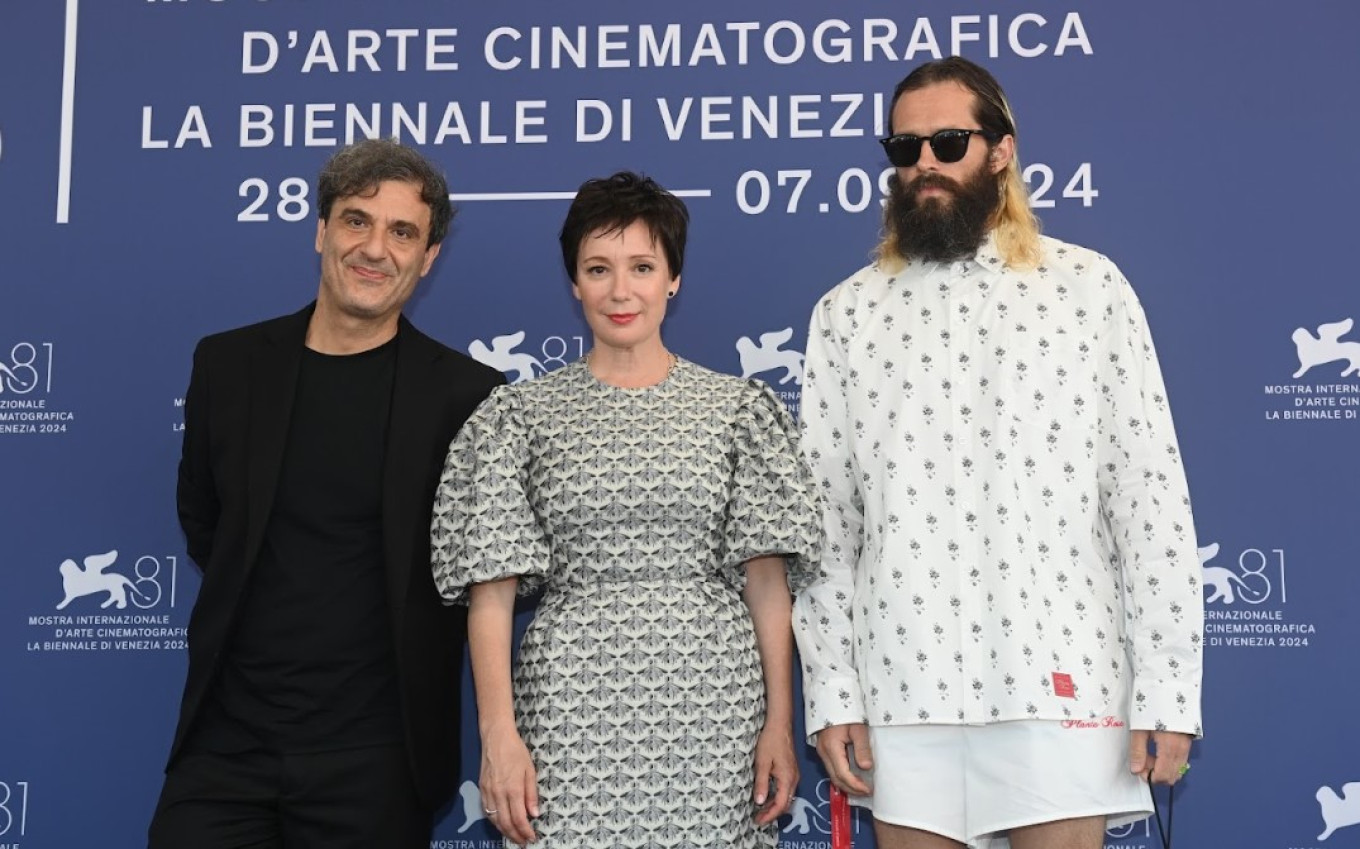
In the film, the authorities put pressure on the emigrants, and the emigrants, in turn, put pressure on their children, hoping to elicit pity from the services. “I appreciate how the film portrays a family turning into an analogue of the very system they are trying to escape,” Khamatova said. “They adapt this system to their own needs and begin to put pressure on their daughters… but they stop in time.”
When asked how her life has unfolded in exile, Khamatova said, “I don’t see any creativity or career continuation for me at the moment. I live one day at a time, deciding as projects come in. Interestingly, I’ve discovered that you can expand your horizons in a relatively short time. For example, I learned Latvian in a year and even started performing in it. The decision not to return home in the spring of 2022 was the most difficult decision of my life. I had to instantly give up all titles and awards and start over.”
“But now I realize that I’ve embarked on a new journey into the world of experiments, and the boundaries of this world are constantly expanding,” she continued.
“Making this film was a little bit like a psychoanalysis for me. We shot it a year ago, and everything about exile was still so fresh, especially with the daily news of the war. I was receiving awful news from Russia, always wondering what had happened to my friends. During filming, a close friend of mine, young theater director Yevgenia Berkovich, was sentenced to six years in jail for no reason: she just wrote some anti-war poetry.”
“It’s important for the world to be aware of what’s happening in Russia,” she said. “Innocent and talented people like Yevgenia are in prison. The Russian government has destroyed her life and the lives of her adopted children.”
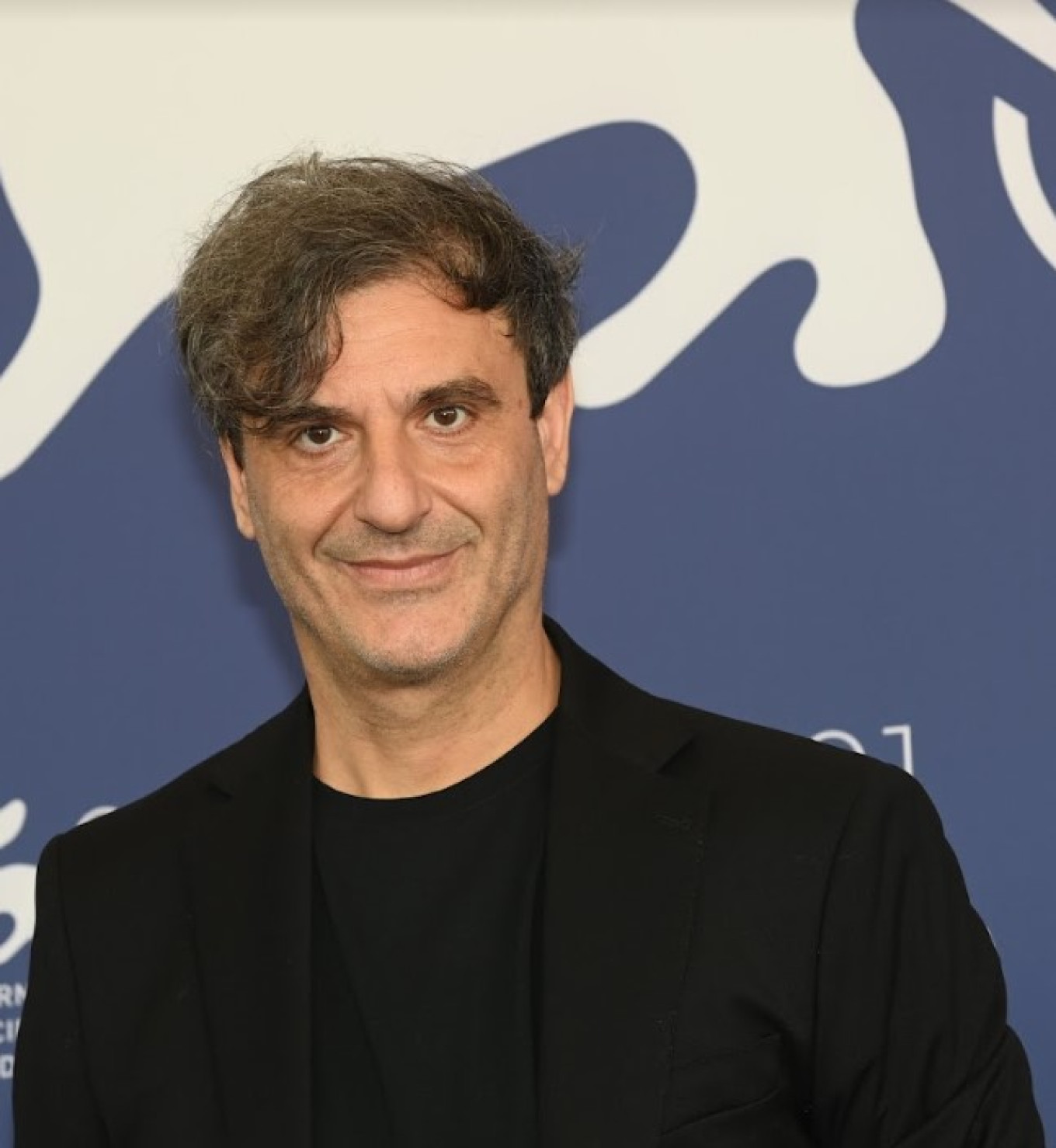
Avranas’ film raises many questions, including what kind of world we are leaving for our children. The title of the film, “Quiet Life,” sounds somewhat ironic as the protagonists struggle to find peace, which seems to drift further away from them the harder they search for it. “In Europe today, thousands of Ukrainian refugees are trying to rebuild their lives from scratch in a new culture, with a new language, new schools, and new friends,” Avranas said. “This is not easy. There are also one million Russians who have left their country and must start over from zero. It is deeply concerning.”
In “Quiet Life” both a democracy and an autocracy take actions that threaten individuals’ identity and lives. What is the solution? “The human factor,” Avranas said. “In any situation, some individuals can show compassion, regardless of the system. What truly matters is the type of person one encounters in such a situation, not the society they belong to.”
A Message from The Moscow Times:
Dear readers,
We are facing unprecedented challenges. Russia's Prosecutor General's Office has designated The Moscow Times as an "undesirable" organization, criminalizing our work and putting our staff at risk of prosecution. This follows our earlier unjust labeling as a "foreign agent."
These actions are direct attempts to silence independent journalism in Russia. The authorities claim our work "discredits the decisions of the Russian leadership." We see things differently: we strive to provide accurate, unbiased reporting on Russia.
We, the journalists of The Moscow Times, refuse to be silenced. But to continue our work, we need your help.
Your support, no matter how small, makes a world of difference. If you can, please support us monthly starting from just $2. It's quick to set up, and every contribution makes a significant impact.
By supporting The Moscow Times, you're defending open, independent journalism in the face of repression. Thank you for standing with us.
Remind me later.



